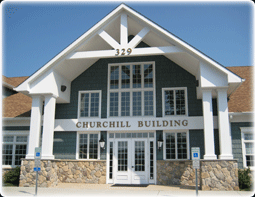Dental Update
Call Giegerich Orthodontics at 609.652.1900 or fill out our online Request an Appointment form to schedule a complimentary consultation with us.
Causes, Symptoms and Treatment of Temporomandibular Joint Disorder
Our temporomandibular joint (TMJ) is a small joint that allows our mandible (lower joint) to move as we please. This tiny joint is located near the ear where our skull and lower jaw converge. When our TMJ becomes inflamed, this causes pain and discomfort in opening the mouth. This condition also produces a clicking sound due to the grating of the joints when opening or closing the mouth.
The size and location of the TMJ makes it vulnerable to injury. Most TMJ disorders relate to overactivity of the jaws. In certain instances, clenching and grinding of teeth are among the common causes of TMJ disorder. Facial injuries resulting in jaw misalignment are also likely culprits for TMJ dysfunction. Displacement of the disc between the jawbone and socket may also produce pain and discomfort, resulting in a limited range of jaw movement.
Clicking sounds and jaw popping are the leading symptoms of a TMJ disorder. Other signs may include headache, vertigo, back pain and stiffness of shoulders, among others. Opening one's mouth can also be very painful.
Treatment of TMJ disorder may range from simple medications to complex surgical procedures. Primarily, nonsurgical treatments and other short-term remedies such as pain relievers, anti-inflammatory drugs and muscle relaxants may be prescribed. For TMJ problems arising from chronic stress, counseling and other stress management endeavors may be suggested instead.
If there is a serious TMJ disorder, a direct surgical approach may be required to treat damaged tissues. Moreover, orthopedic procedures such as arthroscopy may also be performed to treat and inspect the injured joints.
Archive
- 2013-03-21
- 2013-04-21
- 2013-05-21
- 2013-06-21
- 2013-07-21
- 2013-08-21
- 2013-09-21
- 2013-10-21
- 2013-11-21
- 2013-12-21
- 2014-01-21
- 2014-02-21
- 2014-03-21
- 2014-04-21
- 2014-05-21
- 2014-06-21
- 2014-07-21
- 2014-08-21
- 2014-09-21
- 2014-10-21
- 2014-11-21
- 2014-12-21
- 2015-01-21
- 2015-02-21
- 2015-03-21
- 2015-04-21
- 2015-05-21
- 2015-06-21
- 2015-07-21
- 2015-08-21
- 2015-09-21
- 2015-10-21
- 2015-11-21
- 2015-12-21
- 2016-01-21
- 2016-02-21
- 2016-03-21
- 2016-04-21
- 2016-05-21
- 2016-06-21
- 2016-07-21
- 2016-08-21
- 2016-09-21
- 2016-10-21
- 2016-11-21
- 2016-12-21
- 2017-01-21
- 2017-02-21
- 2017-03-21
- 2017-04-21
- 2017-05-21
- 2017-06-21
- 2017-07-21
- 2017-08-21
- 2017-09-21
- 2017-10-21

















